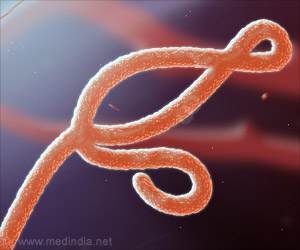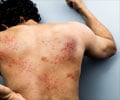High doses of the antiviral drug called favipiravir maybe effective in preventing deaths form Ebola virus infection.
- High dose of antiviral drug, favipiravir, increased survival in non-human primates infected with Ebola virus.
- Favipiravir inhibited viral replication in a drug concentration-dependent manner, with 180 mg/kg of favipiravir having maximum effect.
- Success in non-human primates paves the way for using high doses of favipiravir to treat human Ebola infection.
Ebola
Ebola virus disease is a severe, often fatal illness in humans caused by the Ebola virus. The fatality from the disease is very high, averaging to 50% of the infected. The 2014–2016 outbreak in West Africa was the largest and most complex Ebola outbreak since the virus was first discovered in 1976. Despite repeated outbreaks, there is still no effective treatment for patients with Ebola virus disease.Study Overview
Previous studies have indicated that the antiviral drug favipiravir was well tolerated in humans at low doses, however it did not show strong antiviral activity.This study was aimed at studying the tolerance and effectiveness of the same drug to treat Ebola virus infection in non-human primates. The team infected 26 non-human primates with the 2001 Gabon strain of Ebola virus and followed them for 21 days. Half of the animals were treated and the other half was not treated. The treatment regimen began 2 days before infecting the primates with the virus strain, with two daily doses of favipiravir at 100, 150, or 180 mg/kg.
Study findings
- All animals that were not treated died within ten days of infection.
- All animals that were treated with 100 mg/kg of favipiravir also died within 10 days of infection.
- Forty percent of animals treated with 150 mg/kg of favipiravir were still alive at day 21 of the study.
- Sixty percent of animals treated with 180 mg/kg of favipiravir survived to day 21.
Translation into humans
This study model cannot be applied to humans as the model is fully lethal and in human patients, treatment initiation often begins days after viral infection. At this stage, the disease symptoms and high levels of viral replication are already present.However, the team is looking forward to the future prospects of the study; "These results, together with previous data collected on tolerance and pharmacokinetics in both non-human primates and humans support the evaluation of high doses of favipiravir for future human intervention in particular for contact cases" the authors say.
Reference:
- Guedj J, Piorkowski G, Jacquot F, Madelain V, Nguyen THT, Rodallec A, et al., "High doses of antiviral drug may be effective against Ebola", PLoS Medicine 15(3): e1002535. doi.org/10.1371/journal.pmed.1002535












